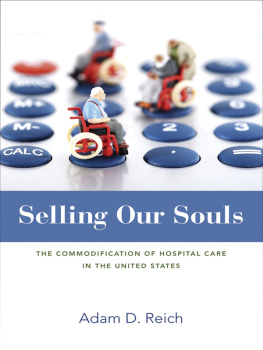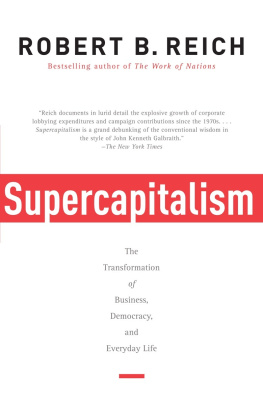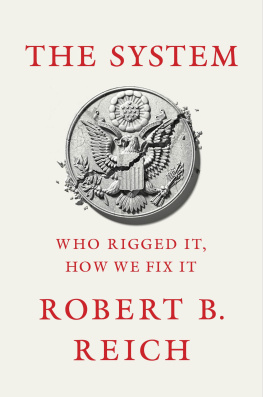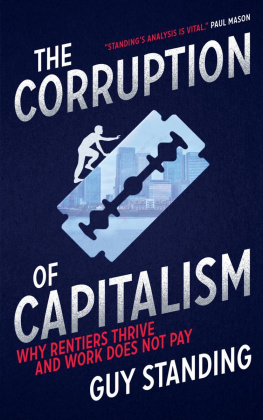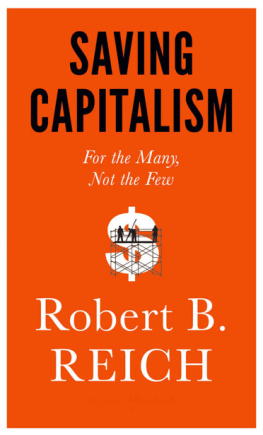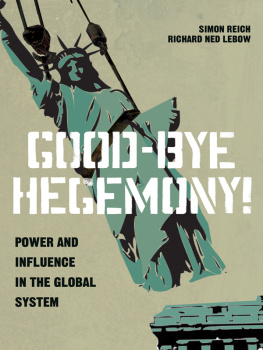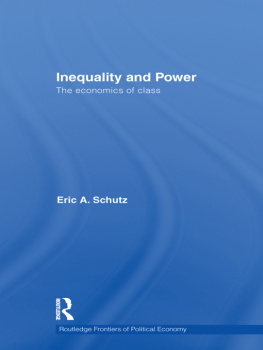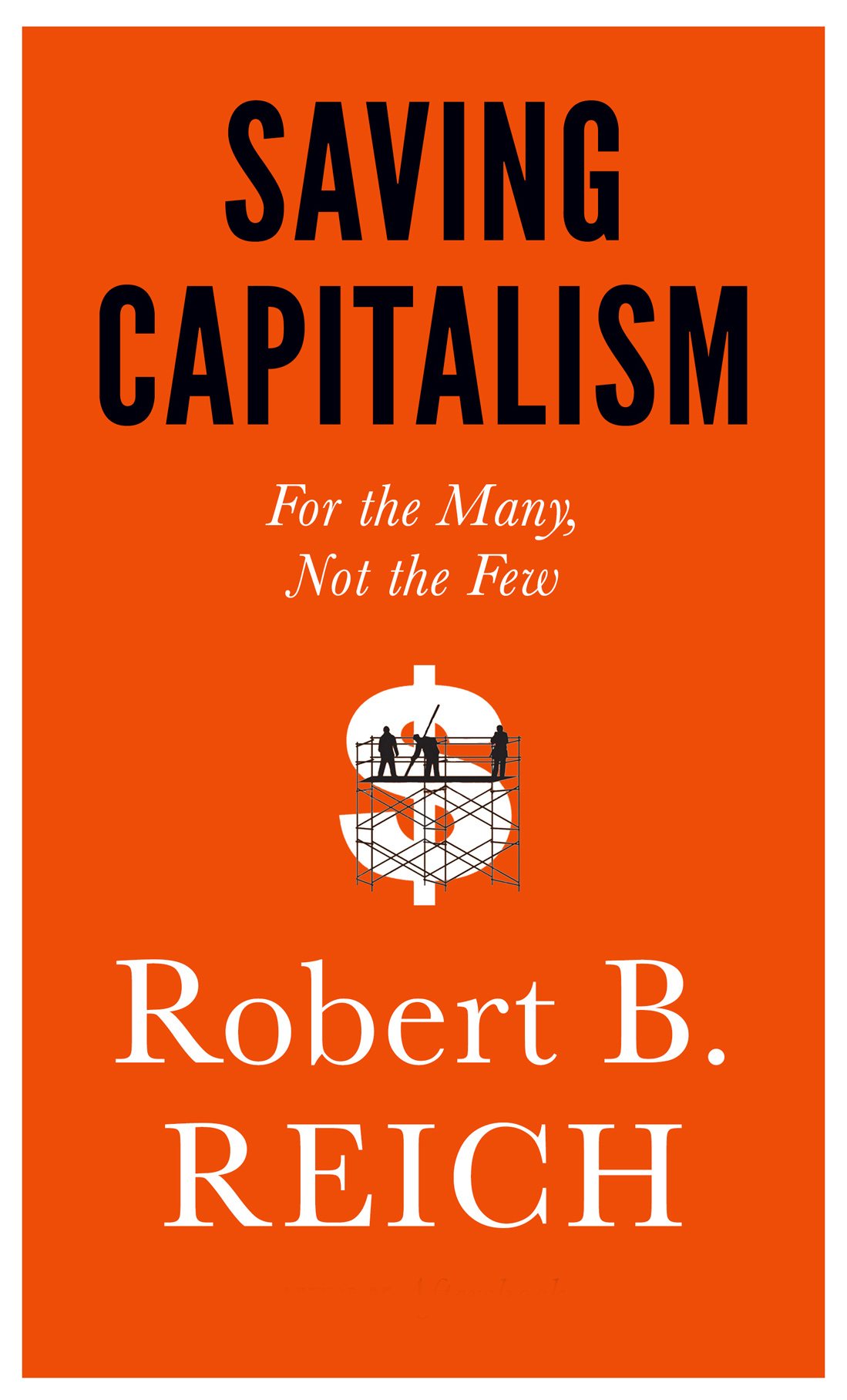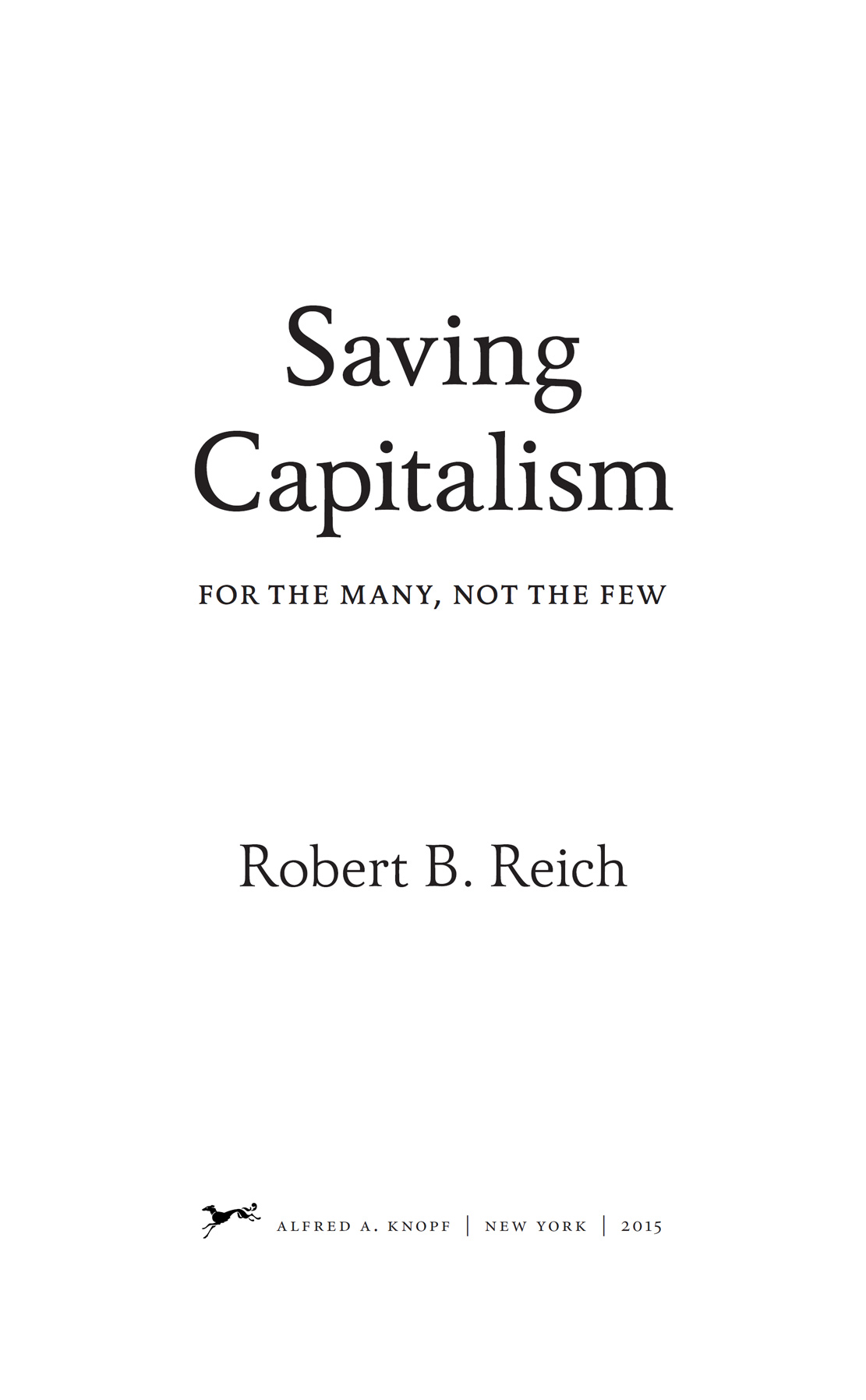Contents
ALSO BY ROBERT B. REICH
Beyond Outrage
Aftershock
Supercapitalism
Reason
Ill Be Short
The Future of Success
Locked in the Cabinet
The Work of Nations
The Resurgent Liberal
Tales of a New America
The Next American Frontier
AS EDITOR
The Power of Public Ideas
AS CO-AUTHOR, WITH JOHN D. DONAHUE
New Deals
THIS IS A BORZOI BOOK
PUBLISHED BY ALFRED A. KNOPF
Copyright 2015 by Robert B. Reich
All rights reserved. Published in the United States by Alfred A. Knopf, a division of Penguin Random House LLC, New York, and distributed in Canada by Random House of Canada, a division of Penguin Random House Ltd., Toronto.
www.aaknopf.com
Knopf, Borzoi Books, and the colophon are registered trademarks of Penguin Random House LLC.
Library of Congress Cataloging-in-Publication Data
Reich, Robert B.
Saving capitalism : for the many, not the few / Robert B. Reich.1st United States edition.
pages cm
Includes bibliographical references and index.
ISBN 978-0-385-35057-0 (hardcover : alk. paper) ISBN 978-0-385-35058-7 (eBook) 1. CapitalismUnited States. 2. DemocracyEconomic aspectsUnited States. 3. Income distributionUnited States. I. Title.
HB 501. R 359 2015
330.973dc23
2015001873
Cover image: So Rad/Shutterstock
Cover design by Joe Montgomery
v4.1
a
In fond memory of John Kenneth Galbraith
There are two modes of invading private property; the first, by which the poor plunder the richsudden and violent; the second, by which the rich plunder the poor, slow and legal.
JOHN TAYLOR , An Inquiry into the Principles and Policy of the Government of the United States (1814)
Contents
Introduction
Do you recall a time when the income of a single schoolteacher or baker or salesman or mechanic was enough to buy a home, have two cars, and raise a family? I do. In the 1950s, my father, Ed Reich, had a shop on the main street of a nearby town, in which he sold womens clothing to the wives of factory workers. He earned enough for the rest of us to live comfortably. We werent rich but never felt poor, and our standard of living rose steadily through the 1950s and 1960s.
That used to be the norm. For three decades after World War II, America created the largest middle class the world had ever seen. During those years the earnings of the typical American worker doubled, just as the size of the American economy doubled. Over the last thirty years, by contrast, the size of the economy doubled again but the earnings of the typical American went nowhere.
Then, the CEOs of large corporations earned an average of about twenty times the pay of their typical worker. Now they get substantially over two hundred times. In those years, the richest 1 percent of Americans took home 9 to 10 percent of total income; today the top 1 percent gets more than 20 percent.
Then, the economy generated hope. Hard work paid off, education was the means toward upward mobility, those who contributed most reaped the largest rewards, economic growth created more and better jobs, the living standards of most people improved throughout their working lives, our children would enjoy better lives than we had, and the rules of the game were basically fair.
But today all these assumptions ring hollow. Confidence in the economic system has declined sharply. The apparent arbitrariness and unfairness of the economy have undermined the publics faith in its basic tenets. Cynicism abounds. To many, the economic and political systems seem rigged, the deck stacked in favor of those at the top.
The threat to capitalism is no longer communism or fascism but a steady undermining of the trust modern societies need for growth and stability. When most people stop believing they and their children have a fair chance to make it, the tacit social contract societies rely on for voluntary cooperation begins to unravel. In its place comes subversion, small and largepetty theft, cheating, fraud, kickbacks, corruption. Economic resources gradually shift from production to protection.
We have the power to change all this, re-creating an economy that works for the many rather than the few. Contrary to Karl Marx, there is nothing about capitalism that leads inexorably to mounting economic insecurity and widening inequality. The basic rules of capitalism are not written in stone. They are written and implemented by human beings. But to determine what must be changed, and to accomplish it, we must first understand what has happened and why.
For a quarter century, Ive offered in books and lectures an explanation for why average working people in advanced nations like the United States have failed to gain ground and are under increasing economic stress: Put simply, globalization and technological change have made most of us less competitive. The tasks we used to do can now be done more cheaply by lower-paid workers abroad or by computer-driven machines.
My solutionand Im hardly alone in suggesting thishas been an activist government that raises taxes on the wealthy, invests the proceeds in excellent schools and other means people need to get ahead, and redistributes to the needy. These recommendations have been vigorously opposed by those who believe the economy will function better for everyone if government is smaller and if taxes and redistributions are curtailed.
While the explanation I have offered for what has happened is still relevant, Ive come to believe it overlooks a critically important phenomenon: the increasing concentration of political power in a corporate and financial elite that has been able to influence the rules by which the economy runs. And the governmental solutions I have propounded, while I think still useful, are in some ways beside the point, because they take insufficient account of the governments more basic role in setting the rules of the economic game. Worse yet, the ensuing debate over the merits of the free market versus an activist government has diverted attention from several critical issues: how the market has come to be organized differently from the way it was a half century ago, why its current organization is failing to deliver the widely shared prosperity it delivered then, and what the basic rules of the market should be.
I have come to think that the diversion of attention away from these issues is not entirely accidental. Many of the most vocal proponents of the free marketincluding executives of large corporations and their ubiquitous lawyers and lobbyists, denizens of Wall Street and their political lackeys, and numerous multimillionaires and billionaireshave for many years been actively reorganizing the market for their own benefit and would prefer these issues not be examined.



